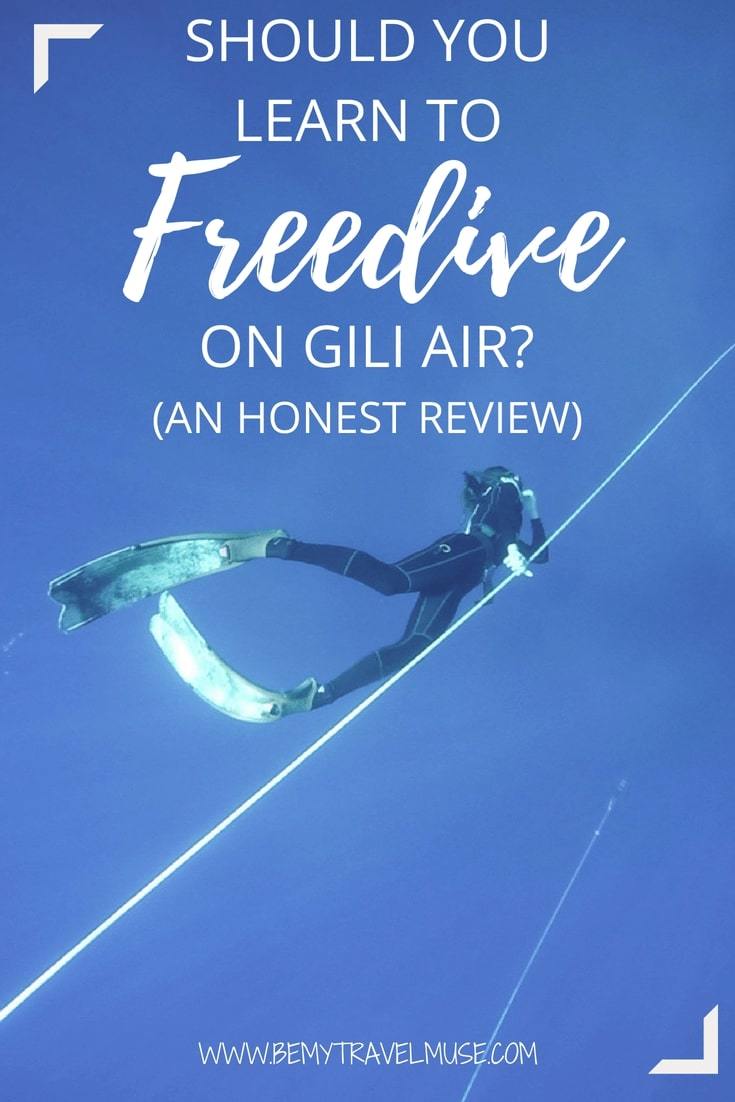
I morphed from land shark to mermaid in four days on Gili Air. I couldn’t believe how difficult it was, and then how simple. Something had to click in my mind. Then, like magic, I could fin down to 16 meters on a single breath-hold.
Most sports require strength and endurance, but freediving is different.
Freediving is more mental than anything else I’ve tried.
The concept is to train yourself to get deeper and deeper on a single breath of air. Why would anyone want to do that? I’m glad you asked!
- Many fish are scared of the bubbles from a scuba regulator. Have you ever noticed that when you snorkel, the fish get closer? The only problem with snorkeling is, you’re stuck at the surface. Freediving brings the best of both worlds together.
- There’s less gear involved. You only need fins, weights, a mask and snorkel, and you’re golden.
- It builds up mental endurance. I didn’t grasp this benefit until I began practicing freediving. Now I can see how much of it is predicated on relaxation and calmness. The body’s alarm bells go off, but you learn to meditate through it. This is beneficial above water, too.
- It’s the closest thing to being a mermaid, and that was my chief reason, TBQH.
Once I’d made that decision, choosing where to do the course came next. For those familiar with the blog, I’m in love with Lombok in Indonesia and the Gilis off the coast are known for good freediving courses. I went with Freedive Flow based on the positive reviews and because I prefer Gili Air to Gili Trawangan. It’s calmer and more chilled. I love me some chilled.
Day one was about understanding why the body feels the urge to breathe even when oxygen levels in the blood are still healthy. Next we practiced a ‘static breath hold’ in the pool. My longest was 2:30, which surprised me! I figured I’d be up after less than a minute. So far, so good with the relaxation.
Then we hit the open water, which was completely different. For me, it resulted in hitting a road block. You can see more in the video:
After a failed first day of trying to get down, I knew it came down to practice. Like most things, getting good at freediving would mean I needed more open water time. I had to shelf my frustration and keep trying.
I hopped on my bike and cycled to the sunset, as I would every evening on Gili Air. It must be a rule written somewhere: There are no bad sunsets on this island.
Nothing can turn my mood around quite like a good sunset.
The next day I had similar troubles, failing to get past the first meter on my first three dives. For someone who is used to equalizing while scuba diving, it can be difficult to change techniques for freediving.
I knew I had to change my approach.
I floated face down in the water watching the light beams dart through the blue. I relaxed each part of my body starting with my eyes, moving down to my jaw, my neck, chest, arms, and onward. Relax, relax, relax. It was a ploy to distract my mind.
“This is just for fun,” I reminded myself, “there’s no competition here.”
With the pressure off of my mind, I could finally release it in my ears. It was like a switch flipped and I could finally equalize. I got down to 7 meters, then to ten, and then to twelve. The next day, I made it down to 16, completed my rescue dive, and buddy dived several times as well.
From one moment to the next it went from ‘can’t’ to ‘doing it!’
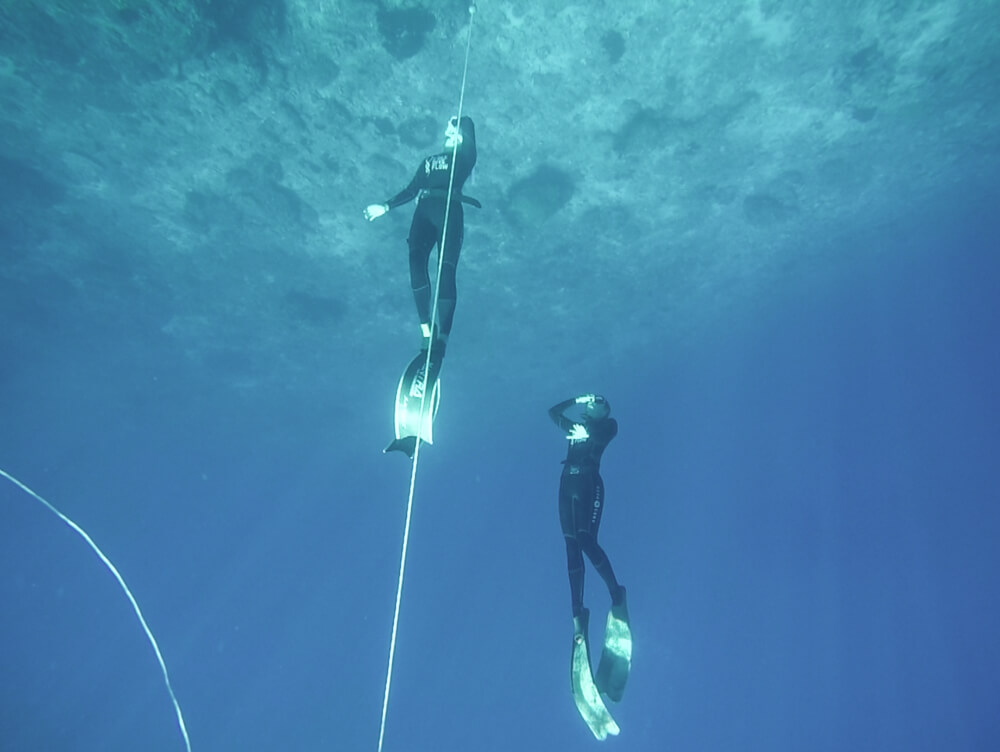
I can see now why freediving is addictive. It’s like entering into a new state of consciousness.
The urge to breathe is fierce, and it takes mental strength to get over it. Thankfully it can be learned, and any healthy person can do it.
I’m hooked now, and I know I can go deeper. That’s what I aim to do, little by little.
I’m so excited to have taken this first step towards becoming a mermaid. If you’re tempted to try it for yourself, do it. I promise you’ve never done anything like it.
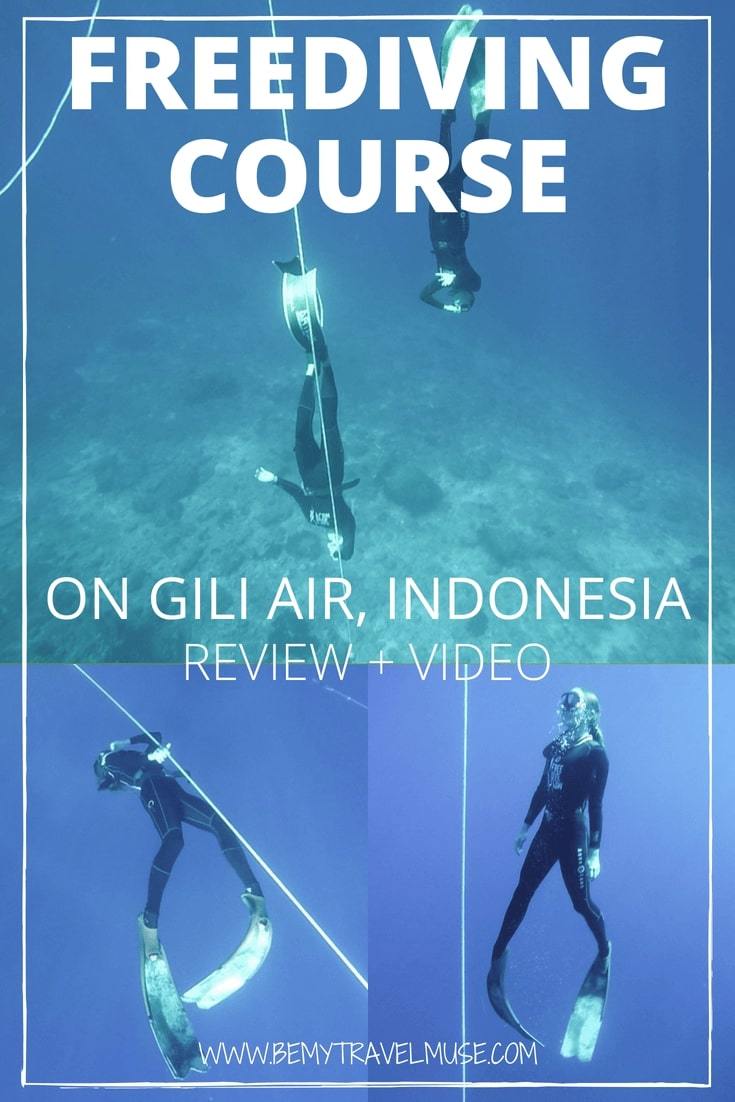
READ NEXT: Secrets of Lombok: A Full Guide to the Island
*This post was brought to you in partnership with Freedive Flow. Feelings towards mermaiding are my own.
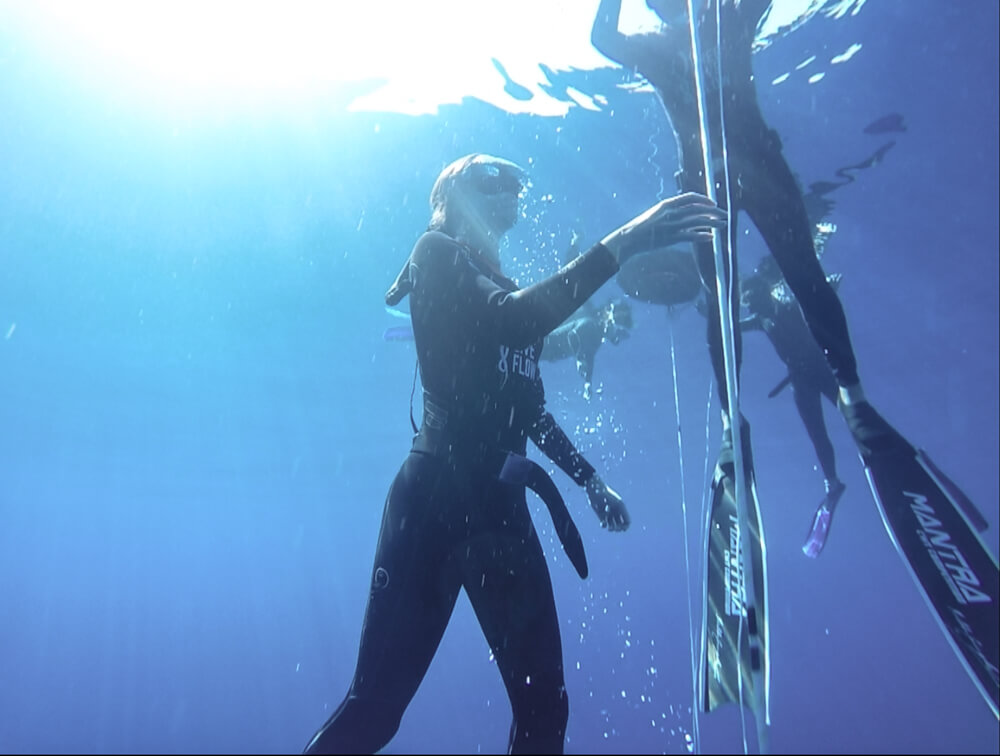
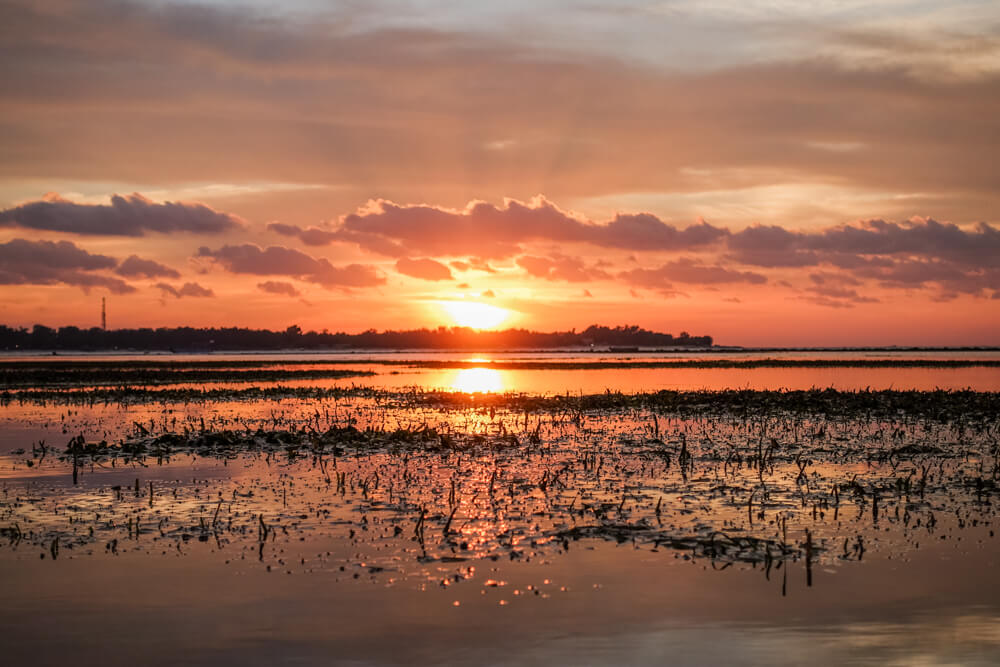
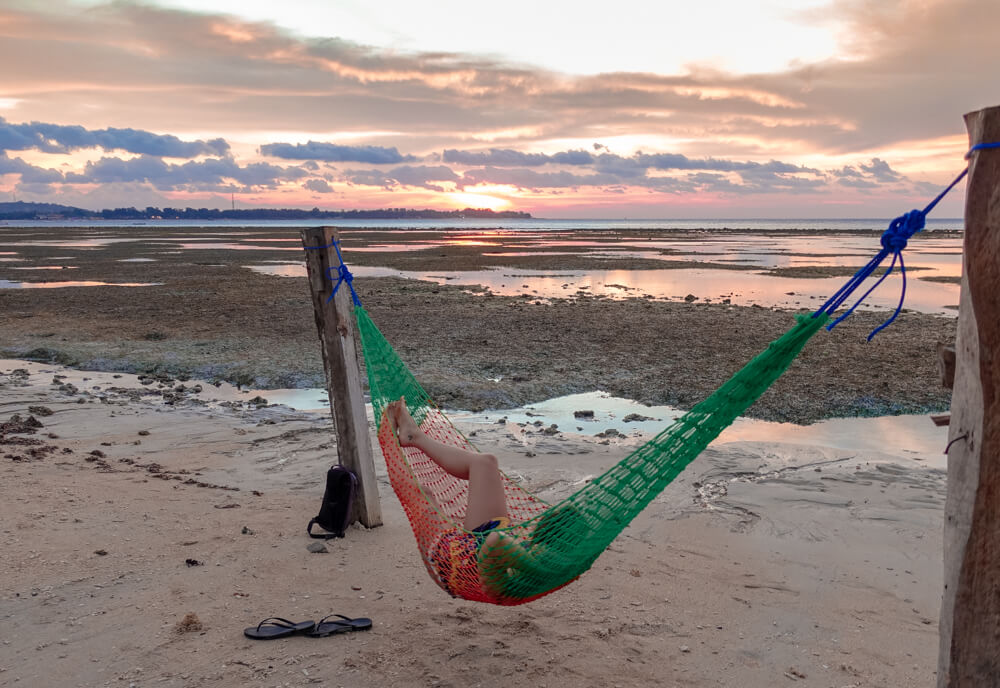
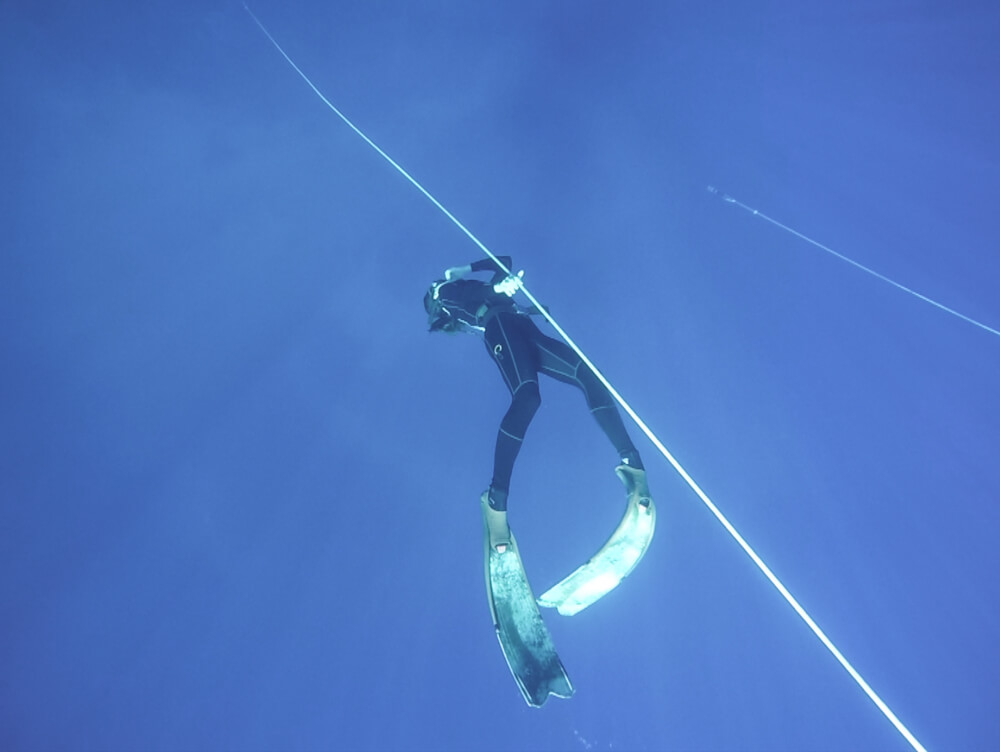

scott says
That’s so awesome! So what was the longest you held your breath? The 2:30?
Kristin says
Yep.
GG says
Hi Kristin! Congrats on your success and getting certified for level 1! Very proud of you. I don’t know if I could take a test while videoing myself! 🙂 Clearing a mental block is never easy, it is by far the hardest thing for me to clear. BTW, a 2:30 static breath hold is so impressive on its own. I freak out my kids when at the pool. I drift down and sit on the bottom of the pool and close my eyes and relax there, so peaceful, and it can last 2-3 minutes, I can’t imagine holding it that long while in motion between the ears and the CO2 buildup. But you can learn apparently pretty quickly! How long did you need to hold your breath to get down to 16m and back? How deep did you go with the rescue? That’s great to know heaven forbid your buddy in the dive has problems. What’s a good price for these courses and what should I look for in terms of accreditation so I can trust them to be qualified for this? Sorry for so many questions, but this intrigues me since I love to swim underwater (I like to go from one side to the other and back in the pool that way sometimes, although that takes me only 1 minute). Although any healthy person can do it, I imagine one must be properly trained (certainly to know when you do have to resurface versus your body just out of reflex wanting to breathe) and not try to do this alone and the company you went with sounds fantastic and has a positive, relaxing feel to them. I love how they tested you physically before moving forward, you always find the best places! And it is good to know how you pronounce “Air” in Gili Air. I love the puns and irony, learning to hold your breath in “Air” and “Air” means water in Bahasa Indonesia :)!
Kristin says
I would look for AIDA, SSI or PADI which will be a standard requirement for certification. You go down to 10 meters to do the rescue, and I’m not actually sure how long it took me to get down to 16 and back. Not that long! They don’t want you to focus so much on numbers because then you forget technique and that’s what’s important and results in longer numbers. Hard not to constantly want to ask how far you went though! Courses usually cost at least a couple hundred dollars for an intro.
GG says
Thanks Kristin for the info and advice. Makes sense to concentrate on a successful dive than numbers :). It’s not about ego and competition. Found a PADI/SSI certified place has just added free diving training just down the street (the only one in town now, maybe in the state), still getting their feet wet, but might consider it if they do well and expand to a full 2-3 day beginner course ($375 seems reasonable which is what they say it would cost)! Best wishes for a successful Tonga dive with the belugas in August!
Kristin says
That’s more than what it cost on Gili Air however I’d expect that since their operating costs would be higher in the States.
Sarah says
I learned freediving at Freedive Flow, too! They have such a great, supportive vibe there. I swam with whales in Tonga but before I knew how to freedive – I’m sure those skills are going to make it even more amazing!
Kristin says
How was it?! I’m sooo excited to go!
Aaron says
Your article doesn’t go into too much detail, but it kind of sounds like you had trouble transitioning from Valsalva equalization to Frenzel equalization. Is that right? That exactly my problem 🙁 I completed a level 1 course and made it to 20m no problem, did the rescues, etc. But I couldn’t actually pass the course b/c I couldn’t Frenzel and therefore had to pull myself down the rope and keep my head up to use Valsalva. So, if you have any thoughts/resources on how you figured out Frenzel, please do share! For now, my ‘freediving career’ is kind of on hold until I figure out Frenzel…
Kristin says
I couldn’t do either. What helped me to master Frenzel was sealing off my throat and forming a pocket of air at the roof of my mouth with my tongue and pushing that upwards. You’ll see the sides of your nose bulge when you’re doing it correctly. It didn’t take long for it to become second nature.
Alexa says
Hi Kristin!
Would love to learn to freedive so I can come on one of your Tonga whale trips someday. Are there any other spots you’d recommend taking a freediving course? I live near Toronto, Canada and thought I could maybe fly south somewhere (minimal flight time and time zone difference) to give it a shot. Would I need to know how to scuba first?
Thanks so much!
Kristin says
You don’t need to know how to SCUBA! Lots of our guests got certified in quarries in the midwest or east coast.
Peter says
Hello.I am going to do 12days training from 3rd Feb 2024 to 14th Feb 2024.My PB is 55 meters on 2018.I have some questions about training in BALI.
1. Is your dive center in GILI AIR?
2. How far is the training point from the beach? Can we just swim to the point? Or we need a boat?
3. What’s the total price of the 12 days training?
Regards&Best wishes.